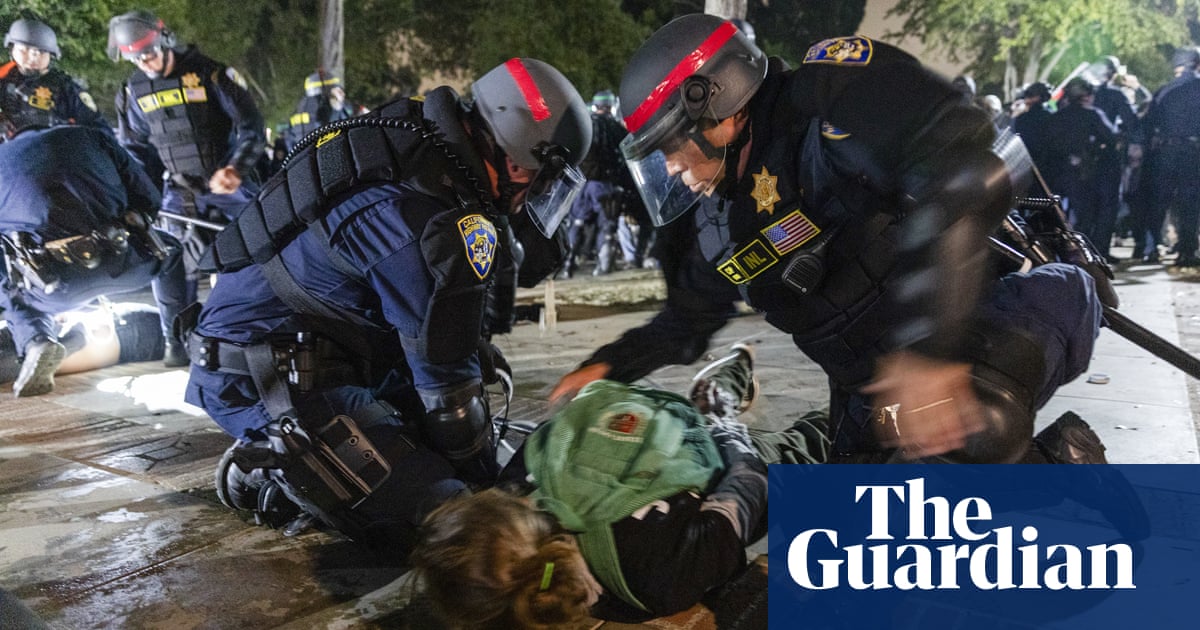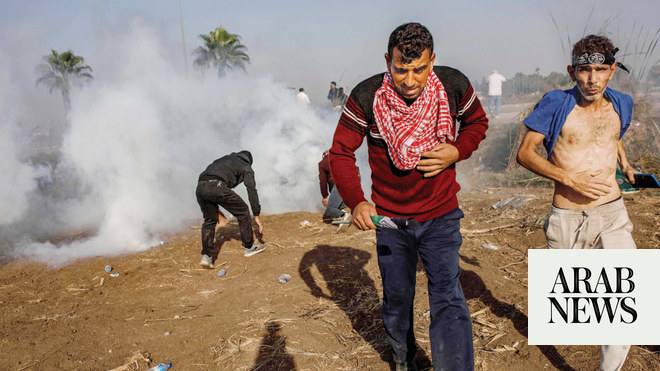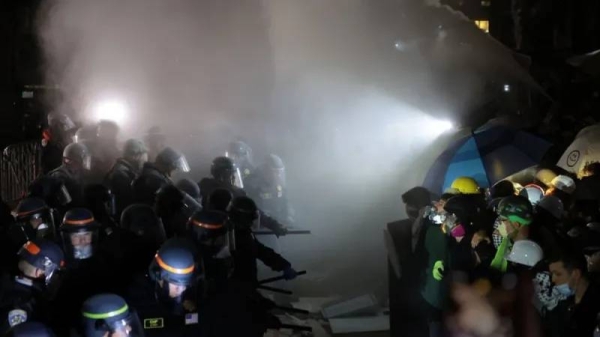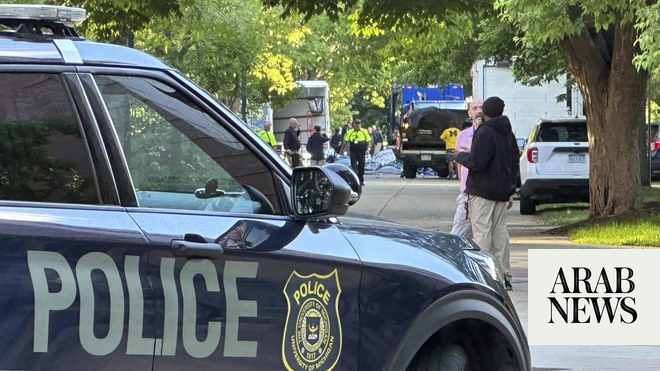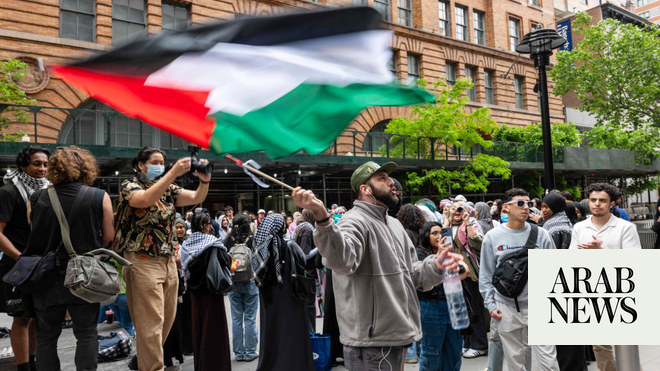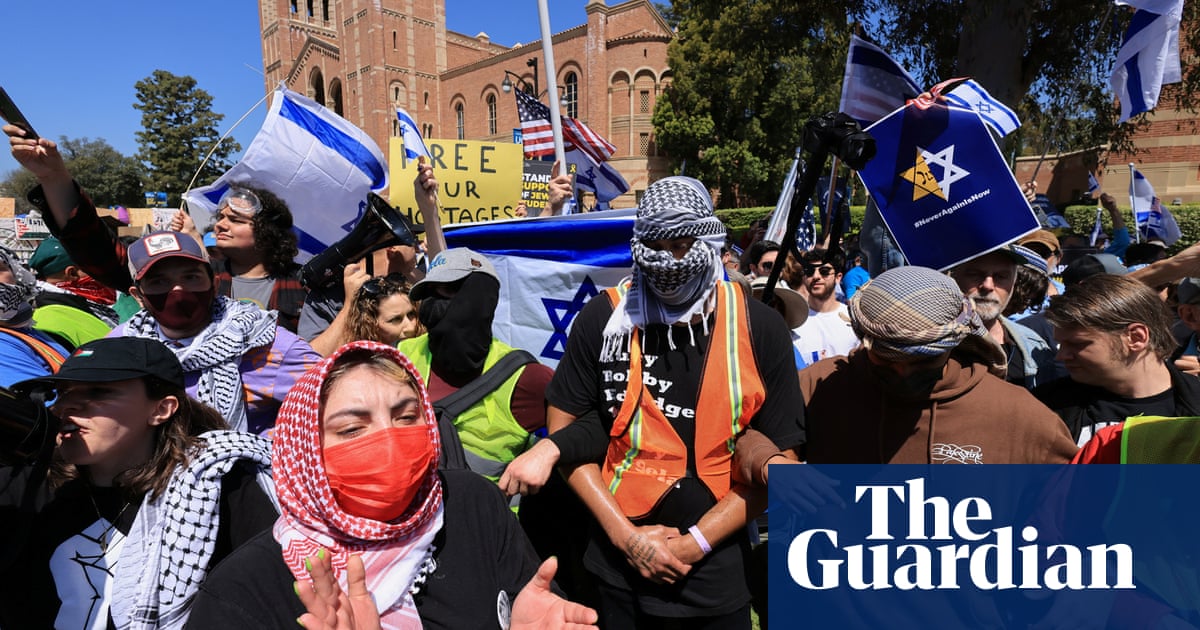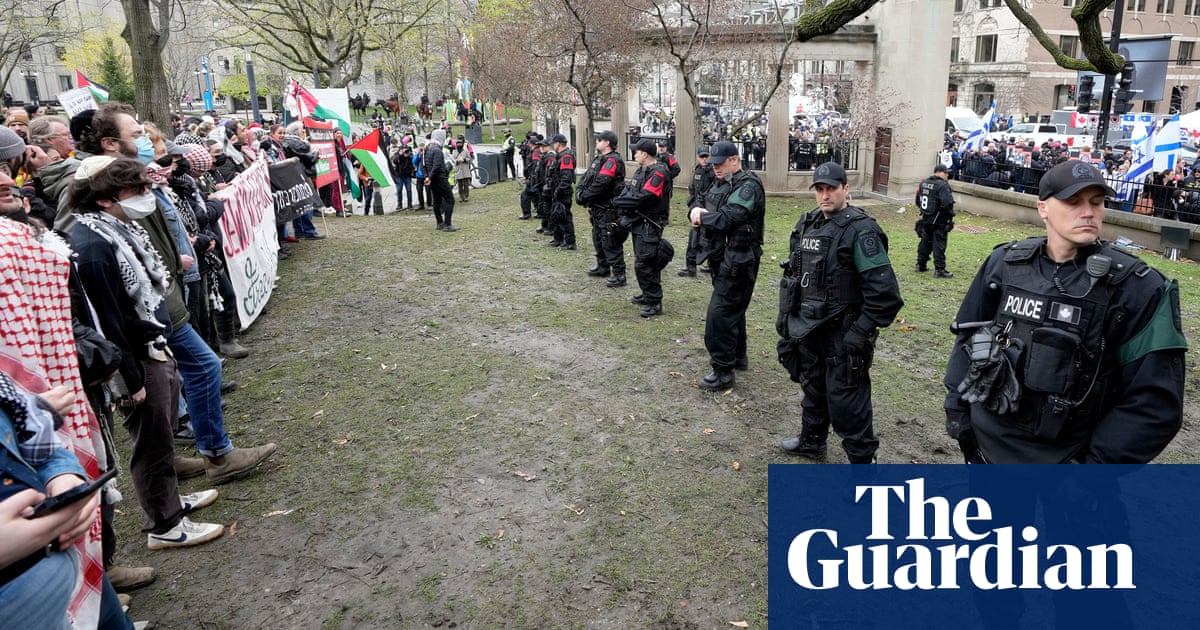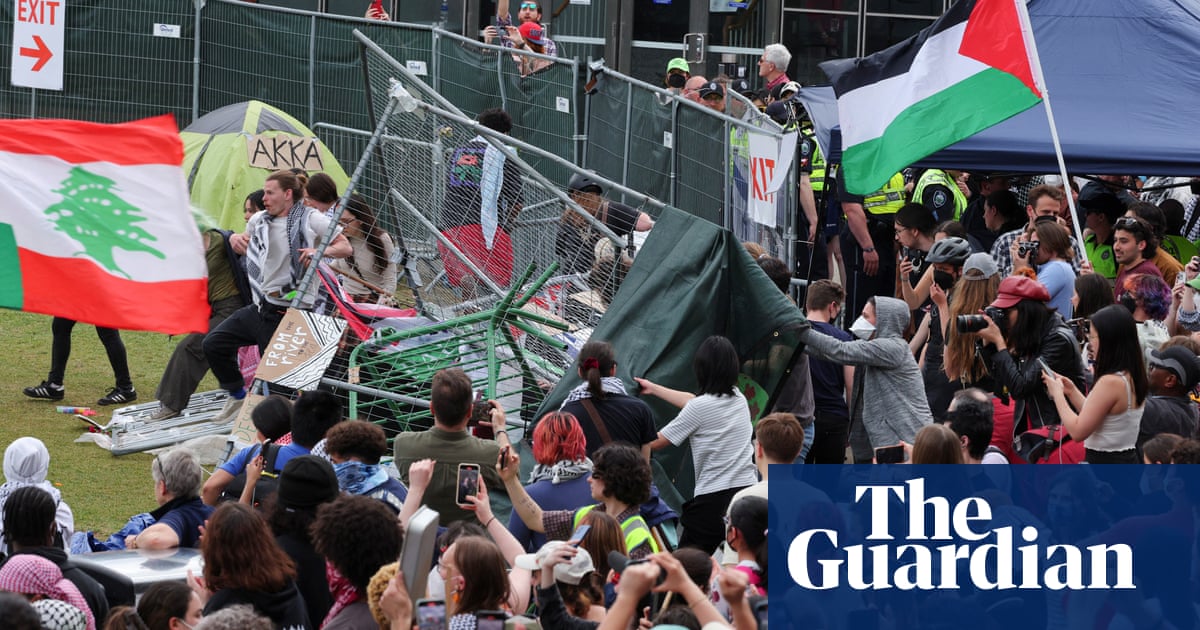
Pro-Palestinian protesters who had been blocked by police from accessing an encampment at the Massachusetts Institute of Technology on Monday broke through fencing, linked arms and encircled tents that remained there, as Columbia University canceled its university-wide commencement ceremony following weeks of pro-Palestinian protests.
Sam Ihns, a graduate student at MIT studying mechanical engineering and a member of MIT Jews for a Ceasefire, said the group had been at the encampment for the past two weeks and that they were calling for an end to the killing of thousands of people in Gaza.
“Specifically, our encampment is protesting MIT’s direct research ties to the Israeli Ministry of Defense,” he said.
Protesters also sat in the middle of Massachusetts Avenue, blocking the street during rush hour in the Boston area.
The demonstrations at Columbia have roiled its campus and officials said on Monday that while it would not hold its main ceremony, students would be able to celebrate at a series of smaller, school-based ceremonies this week and next.
The decision comes as universities around the country wrangle with how to handle commencements for students whose high school graduations were derailed by Covid-19 in 2020. Another campus shaken by protests, Emory University, announced on Monday that it would move its commencement from its Atlanta campus to a suburban arena. Others, including the University of Michigan, Indiana University and Northeastern University, have pulled off ceremonies with few disruptions.
Columbia’s decision to cancel its main ceremony, scheduled for 15 May, saves its president, Minouche Shafik, from having to deliver a commencement address in the same part of campus where police dismantled a protest encampment last week. The Ivy League school in upper Manhattan said it had made the decision after discussions with students.
“Our students emphasized that these smaller-scale, school-based celebrations are most meaningful to them and their families,” officials said.
Most of the ceremonies that had been scheduled for the south lawn of the main campus, where encampments were taken down last week, will take place about five miles north at Columbia’s sports complex, officials said.
Speakers at some of Columbia’s still-scheduled graduation ceremonies include the Pulitzer Prize-winning playwright James Ijames and Dr Monica Bertagnolli, director of the National Institutes of Health.
Columbia had already canceled in-person classes. More than 200 pro-Palestinian demonstrators who had camped out on Columbia’s green or occupied an academic building were arrested in recent weeks.
Similar encampments sprouted up elsewhere as universities struggled with where to draw the line between allowing free expression while maintaining safe and inclusive campuses.
On Monday evening, a group of students at the Rhode Island School of Design in Providence used tables and chairs to barricade the entrance to the second floor of a building on campus, preventing police from getting in, according to a report from the Brown Daily Herald, a student publication at nearby Brown University.
The protest was organized by Risd Students for Justice in Palestine, who said they would not leave the building until president Crystal Williams met their demands for fiscal transparency around investments, “holistic” divestment from groups involved with “sustaining Israel apartheid”, establishing a student oversight committee for investments and publicly condemning Israel’s actions in Gaza as a genocide.
The University of Southern California earlier canceled its main graduation ceremony. Students abandoned their camp at USC on Sunday after being surrounded by police and threatened with arrest.
Other universities have held graduation ceremonies with beefed-up security. The University of Michigan’s ceremony was interrupted by chanting a few times on Saturday. In Boston on Sunday, some students waved small Palestinian or Israeli flags at Northeastern University’s commencement in Fenway Park.
At the University of California, San Diego, police cleared an encampment and arrested more than 64 people, including 40 students, on Monday.
The University of California, Los Angeles, moved all classes online for the entire week due to continuing disruptions following the dismantling of an encampment last week. The university police force reported 44 arrests on Monday but there were no specific details, the UCLA spokesperson Eddie North-Hager said in an email to the Associated Press.
Schools are trying various tactics from appeasement to threats of disciplinary action to get protesters to take down encampments or move to campus areas where demonstrations would be less intrusive.
A group of faculty and staff members at University of North Carolina at Chapel Hill asked the administration for amnesty for any students who were arrested and suspended during recent protests. UNC Faculty and Staff for Justice in Palestine said in a media advisory that it would deliver a letter on behalf of more than 500 faculty who support the student activists.
Other universities took a different approach.
Harvard University’s interim president, Alan Garber, warned students that those participating in a pro-Palestinian encampment in Harvard Yard could face “involuntary leave”. That means they would not be allowed on campus, could lose their student housing and might not be able to take exams, Garber said.




